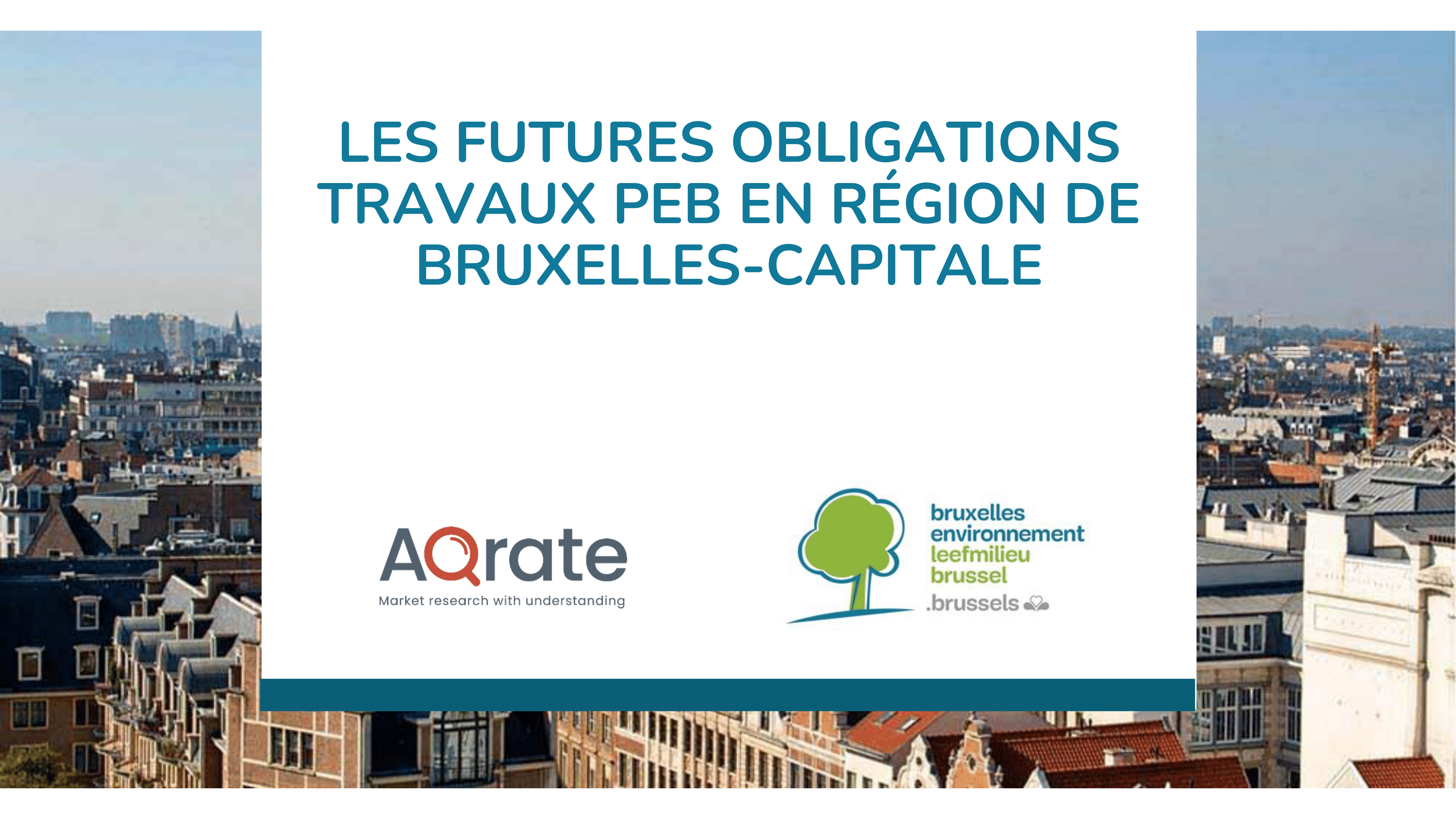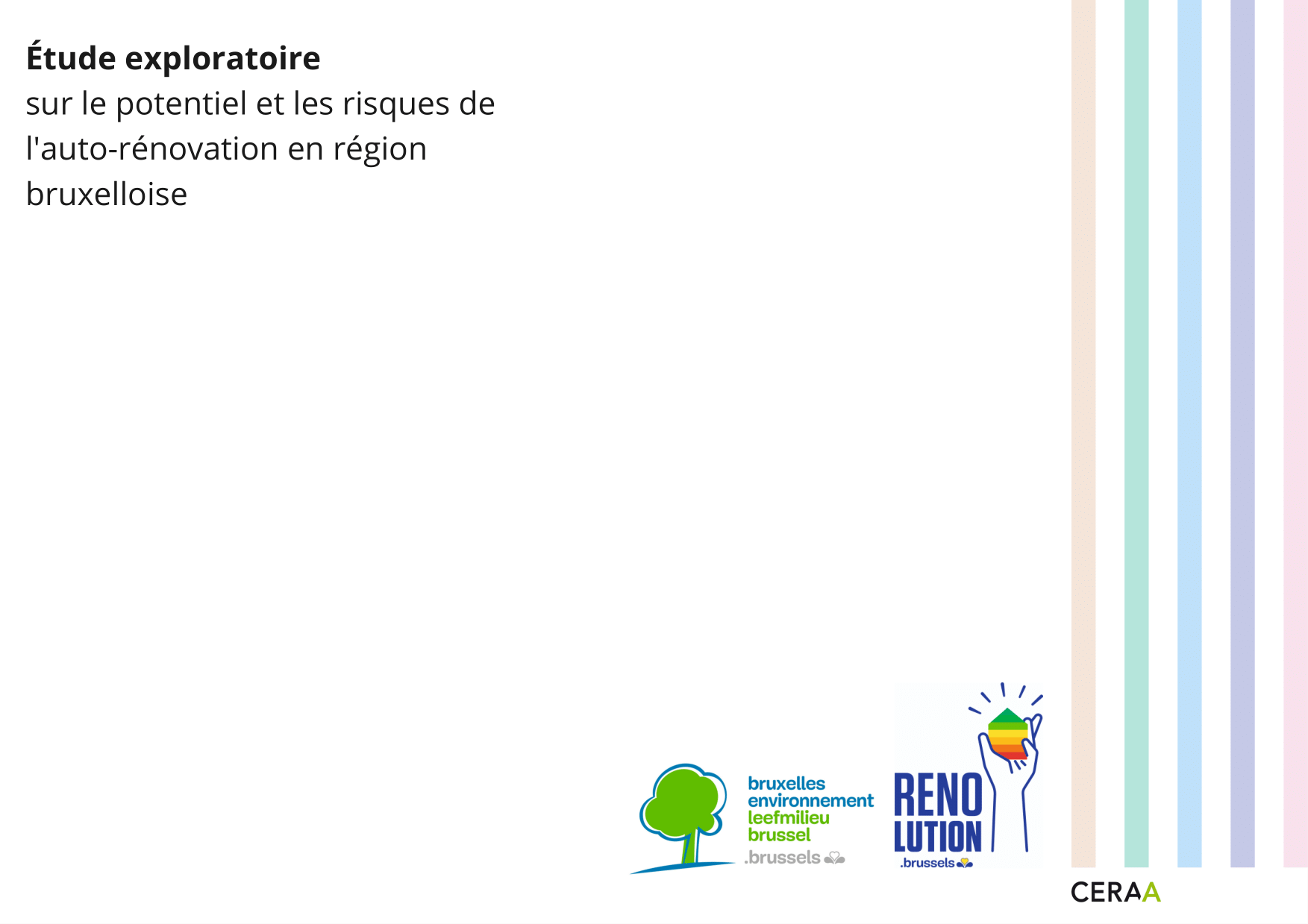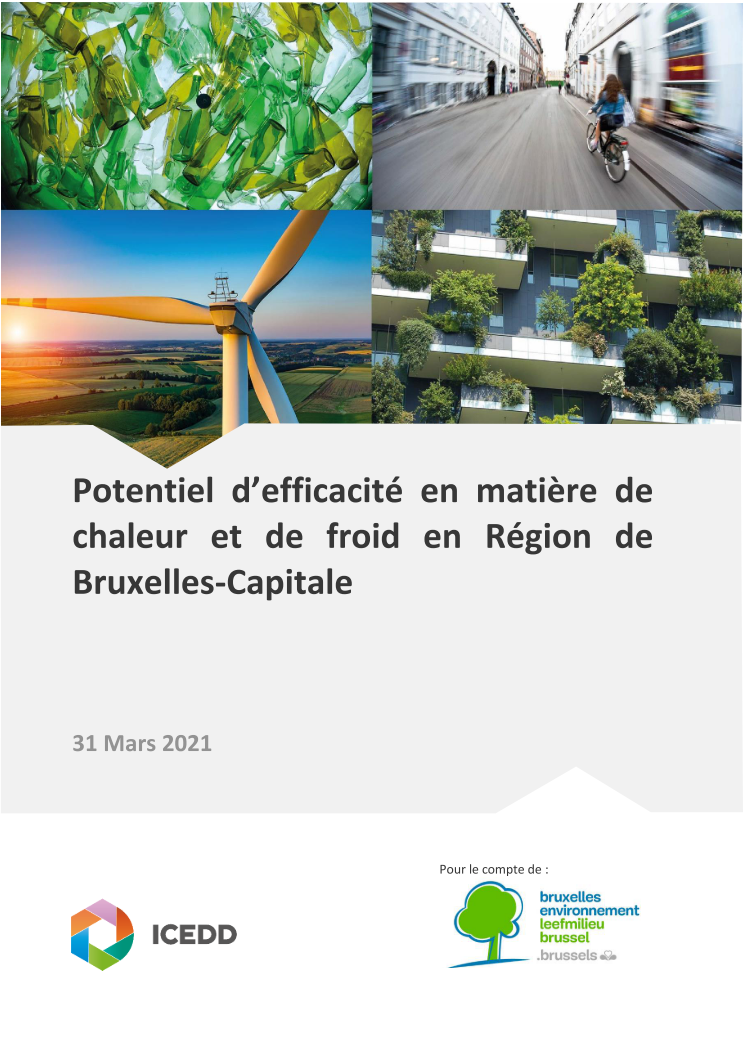66 ENERGY
Type of resources
Available actions
Topics
Keywords
Contact for the resource
Provided by
Years
Formats
Representation types
Update frequencies
status
-
Each year, Brussels Environment draws up an energy balance for the Brussels-Capital Region. It is based on the principle of a balance sheet and provides all the energy-related data for the entire Region: quantities of energy imported, exported, produced, transformed and consumed by the different sectors of activity throughout the Region in one year.
-

The objectives of the survey are to determine the level of understanding of the different concepts relating to energy and EPB, and to measure the level of understanding and acceptance among homeowners and property managers of future EPB obligations in the Brussels-Capital Region, as well as exemptions and financial aid.
-

Self-renovation could be a way of achieving the climate objectives of the Brussels-Capital Region's Renovation Plan more quickly, i.e. attaining an average C+ energy performance for residential buildings by 2050. It would also enable a response to the rise in energy prices, allowing those in need to be included in the renovation of Brussels' heritage. The aim of this study is to verify whether these assumptions can be applied in the Brussels-Capital Region.
-

This study first characterises the current heat and cooling needs in the Brussels-Capital Region as well as the evolution of these needs until 2050. A mapping of these needs is then presented, as well as a visualisation of the main existing heat sources in the Brussels-Capital Region. The technical and economic potential of cogeneration is then calculated. Finally, the study compares the different solutions for meeting heat needs, including the distribution of heat in thermal energy networks.
 Geobru catalogue
Geobru catalogue